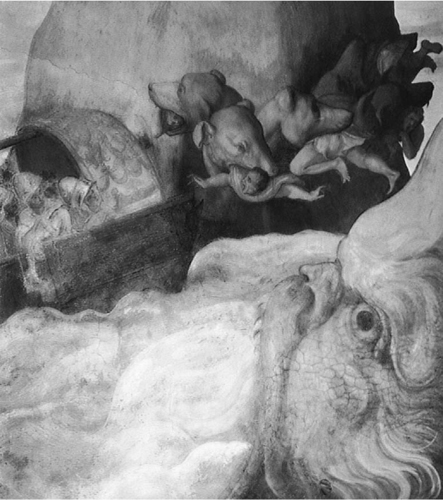Roman MythologyAeneus and Virgil’s Aeneid |
What is the story of the “Odyssean” half of the Aeneid? |
As in the Odyssey, the gods play a large role in determining the progress of the central figure in Virgil’s epic. It was Poseidon’s grudge against Odysseus that for many years prevented the hero’s return to Ithaca. In the Aeneid it is Juno, the wife of Jupiter, who attempts to prevent the hero from achieving his goal. Aeneas is a Trojan warrior, the son of Anchises and the goddess Venus, and a cousin of the great Trojan hero Hector. He has managed to escape Troy after its fall to the Greeks and is on his way to Italy when Juno sends a terrible storm that forces him to land in Libya. Upset at Juno’s treatment of her son, Venus begs her father Jupiter to end the hero’s suffering.
Jupiter promises Venus that her son will eventually get to Italy and that his descendants, Romulus and Remus, will found Rome, the mightiest of all empires. Thus, Virgil employs his story line as a means of celebrating his nation and, by extension, its emperor.
In Libya Aeneas finds his way to Carthage, ruled by Queen Dido. To assure Aeneas’s welcome and to protect him from further interference by Juno, Venus sends Cupid to cause Dido to fall in love with Aeneas.
Dido asks Aeneas to tell the story of his journey from Troy. As does Odysseus at the palace of Phaiakia, Aeneas agrees and becomes the teller of his own tale, one that begins at the fall of Troy.
He tells of the wooden horse that led to the Trojan defeat, of how Hercules (Herakles) came to him in a dream to warn him of the disaster, of how he witnessed the killing of King Priam, of how he blamed Helen for his city’s destruction until Venus appeared to him saying it was not Helen’s fault. Venus urges Aeneas to flee Troy; the gods have other plans for him. Virgil and his readers know that these plans involve the founding of Rome. Aeneas loses his wife, Creusa, who is killed in the confusion, but does manage to escape with his father Anchises and his son Ascanius (Iulus).
After leaving Troy, Aeneas goes to various places before trying to build a new Troy in Crete. A plague undermines his efforts and the gods tell him he must go to Italy. What follows is a ten-year voyage that parallels Odysseus’s long trip home at the same time. Using a popular trick of storytellers, Virgil has his hero meet up with some familiar figures, all known to readers of the Odyssey or the Iliad. On one island he meets Andromache, the wife of the dead Hector, who warns him against the monsters Scylla and Charybdis. On another he meets stranded followers of Ulysses (Odysseus), who tell him how their leader had blinded the Cyclops. Eventually the Cyclops and his brothers appear and Aeneas is forced to flee to Drepanum, where his father Anchises dies.
As Aeneas’s story causes Dido to fall even more in love with him, Juno sees an opportunity for preventing the founding of Rome. In fact, Aeneas and Dido make love and Aeneas would have stayed with her had Jupiter not sent Mercury to remind him of his destiny. Always duty-bound and appropriately stoical, Aeneas leaves Dido to continue his journey, as Odysseus, albeit more willingly, had left Calypso and Circe to continue his. In despair, Dido commits suicide.
Reaching Sicily, Aeneas holds funeral games for his father and Anchises appears to him in a dream saying he must visit him in the Underworld. Book VI is the tale of Aeneas’s Underworld experience—one that parallels Odysseus’s experience in the Odyssey. Aeneas’s ships come to Cumae, where Aeneas visits the Sibyl at the temple of Apollo. The Sibyl tells him of the war that he will have to fight in Latium before the founding of Rome. Once again Virgil uses mythology to back up Roman “history.” The Sibyl also tells him that before he can travel to Dis (the Underworld) he must find a sacred golden bough. This he does and the Sibyl leads him to the Land of the Dead. There, in a poignant scene, he is snubbed by Dido. Shades of fallen Greek warriors flee from him in terror. Aeneas, who had been an insignificant Trojan in the Iliad, has become for Virgil the embodiment of the Roman power to come. Most important, Aeneas receives the blessing of his father, and Anchises foresees the glories of Rome under the descendants of Ascanius.

This 1560 Italian fresco depicts the hero Odysseus caught between a rock and a hard place; that is, the Scylla and Charibdis.
